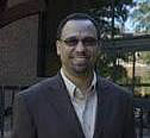Commentary on John 12:1-8
The season of Lent is a time for deeper self-reflection than at other times during the Christian calendar. As part of this religious season, the lectionary passage should encourage many North American Christians to reflect on our attachment to finances. Among other things, the story provokes a comparison between Mary and Judas and the relationship of these two biblical characters to Jesus. Along these lines, the passage describes the understanding of how finances relate to the Jesus movement within this setting. For Mary, the cost of the sacrifice was irrelevant. For Judas, symbolic actions should be cost-effective. The narrator informs readers of the insincerity of Judas’ public pronouncement but chooses not to reveal any more insight into Mary’s thoughts.
If we focus only on finances, however, we may miss the heart of the story; that is, it is an account that encourages readers to think more about death, the preparation of the dead, and the absence of the dead. If nothing else, Lent is a season to reflect on death—the crucified one’s and our own inevitable deaths.
The activity of Mary—though described in only one verse (12:3)—is the action around which the scene revolves. On the one hand, her act is intimate (she wipes Jesus’ feet with her own hair). Only this Gospel depicts one of Jesus’s cherished friends as the anointer (compare Luke’s parallel!). Her activity also touches other senses because the anointing action is a reminder that death—a description found only in John—touches even the nostrils (“The house was filled with the fragrance of the perfume”). The preparation for death should provoke our senses. Within the narrative, the smell of the ointment replaces the stench of (Lazarus’s) death just a few verses prior (see 11:39). Death has a smell, one that many people recognize. For those aware of Mary’s purpose—an act of burial preparation—even the pleasant-smelling oils would remind the senses that death was in the air.
On the other hand, the narrative spends less time reflecting on this preparation than on reactions to it, from Judas and Jesus (12:5-8). The focus of the passage moves readers beyond death back to the use of money and the poor. Unlike the parallels in Matthew and Mark, the narrative scene does not conclude with a profound statement of the anointer’s action. Rather, it beckons readers —unique to the John—to heed the thoughts of Judas (compare Matthew’s collective “disciples”).
Before we turn our attention to Judas, there’s one more point to make about the lingering theme of death. The presence of Lazarus is also a consistent reminder of death’s presence. His continuation within the story was a reminder of Jesus’ power over death, that death would not have the last word. Furthermore, as long as Lazarus remains in these scenes (see John 12:9-11, 17)—an emphasis only in the Gospel of John—the religious leaders are mindful of the popularity (and power) of Jesus. Even the resurrected Lazarus has a bounty on his head (12:10).
For Judas, it was an either/or scenario. Even if his remark was sincere—which the narrator insisted was not the case—it took the wrong approach to lived reality. Jesus did not intend to say “hey, don’t worry about the poor.” Rather, Jesus’ comment falls in line with the spirit of the Torah as in Deuteronomy 15:11—“Since there will never cease to be some in need on the earth, I therefore command you, ‘Open your hand to the poor and needy neighbor in your land’.”
The relative lack of references to the “poor” within the fourth Gospel (similar to Mark’s Gospel) may suggest for some interpreters that the poor was not a major theme within John. More than likely, their linguistic absence from the narrative really only strengthens their common presence within first-century society and within the villages Jesus frequented. Since poverty was everywhere, the narratives of that world did not need to discuss its presence. Listeners to these accounts would have simply assumed the presence of the disenfranchised among them. In fact, John 13:29 supports this assumption as it suggests the regular practice of Jesus, in which the other disciples presume that Jesus’ whisper to Judas (at the final supper) may have been for Judas to take monies to the poor (implying the group’s common practice). Nevertheless, this is not really a story about treatment of the poor but about preparation for death, preparation for Jesus’ death (as Mary noticed).
Lent is a time to remember that death is always in the air. To die is part of what it means to be human. Time within a pandemic is an unfortunate daily reminder of our collective human frailty. When death strikes close to home, most are not fully prepared for the passing of loved ones. Death has a smell and death provides a memory of the loved ones lost. Yet John 12 is a reminder that death will not have the final word. Lazarus is a reminder of that promise, even though his human body will die again. The ointment is a reminder of that promise. The people who gathered for another meal are a reminder of that promise. The prepared, anointed body of Jesus, of course, is the ultimate reminder of that promise. Death will not have the final word. During the season of Lent, we remember that death will not have the final word.
How should the dead affect the living? Isn’t that the purpose of Lent—to reflect on the ultimate death (Jesus’ own) and the significance for the lives, the commitments, the activities, the practices of the living? For what are we willing to sacrifice time, money, efforts? Do we place the struggles of people around us at the center of our attention? Does the nearness of death —for those who live on the fringes of our society, for those in our parishes who are physically near the end of their lives, for those reflecting on Jesus’s sacrifice—make us a bit more mindful of human frailty and, perhaps, encourage us to act on behalf of others?


April 3, 2022